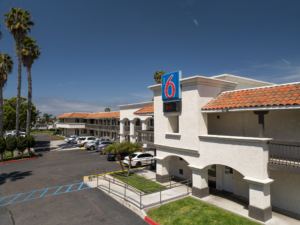La Jolla firm joins rush to acquire financially troubled hotels amid pandemic
La Jolla firm joins rush to acquire financially troubled hotels amid pandemic
La Jolla firm joins rush to acquire financially troubled hotels amid pandemic – La Jolla Light
The newly formed Torrey Pines Hotel Group will join a Los Angeles-based firm to buy up financially distressed hotels at discounted rates and manage them long-term.
As hotels struggle to survive a nearly year-long pandemic that has crushed business and leisure travel, an increasing number of companies are rushing in to acquire financially troubled properties at what they hope will be discounted rates.
Jumping into the fray locally is the newly formed La Jolla-based Torrey Pines Hotel Group, which has partnered with Los Angeles-based investment firm Bainbridge DSX to not only acquire lodging properties across the globe but also manage them for the long term.
The new joint venture, which has raised $500 million, is not focusing on any specific geographic niche but is setting its sights on 3.5- to 4.5-star hotels in the United States, Europe and Asia, according to longtime hotel executive Mike Slosser, who at one time oversaw several well-known San Diego County properties, including L’Auberge Del Mar.
The plan, Slosser said, is to acquire 200 hotels over the next 15 years. The $500 million, he said, represents a combination of the company’s own capital plus money from others looking to invest cash that has been sitting on the sidelines.
“It’s clear that it’s been a year of stressful times in 2020, and I think it still will be through the first three quarters of this year, so there may be times when we can acquire hotels at below replacement cost,” said Slosser, who most recently was president of Howard Hughes Hospitality, where he managed all hospitality-related assets in a $6 billion publicly traded real estate company. “If we can find hotels where we can renovate them and reposition them in the marketplace, we will buy them and hold them long-term.”
No deals have been signed yet, though Slosser said some are in progress. The focus is on properties that have not been marketed for sale, he said.
“If we did five to 10 this year, that would be a success; it just depends on what we find,” said Slosser, whose firm will oversee the management of any hotels that are acquired. “We’re along the path on several but haven’t closed on anything. When we feel it’s a good investment, we’ll pull the trigger.”
The properties being eyed for acquisition don’t necessarily have to need renovation, but they should have 200 to 400 rooms and be full-service, Slosser said. He added that the Bainbridge fund will look at underserved areas and consider acquiring the debt on certain properties if the discount is appealing enough.
As bullish as the new joint venture is about the potential for making profitable deals, it is entering a crowded market where others are scrambling for lucrative deals.
Last month, a newly formed joint venture between AMS Hospitality and Black Salmon announced plans to acquire $300 million in hospitality assets across the United States within the next 18 months. It has since said it plans to narrow its search to strong properties in the Southeast. And this week, another joint venture, Triton Hospitality Group, which has roots in Southern California, announced it, too, would be on the hunt for distressed assets and loans.
“The amount of calls we get for existing groups looking for distressed hotels and new groups that have raised a lot of capital to buy either distressed hotels or distressed debt is unprecedented,” said Alan Reay, president of Orange County-based Atlas Hospitality Group. “The simple fact of the matter is the expected tidal wave of distressed hotel deals is simply not happening.
“The reason is lenders are deferring loan payments and some banks are deferring up until the end of 2021.”
In recent months, there has been considerable consternation over mounting defaults that hotels have been facing on commercial mortgage-backed securities debt. In California, there are more than 80 hotels with such loans that are in default, Reay said. But unlike during the Great Recession, lenders today are more motivated to make adjustments, he added.
“Lenders realize, as does the government, that if they force the banks to foreclose and not work with hotel owners and then bring all these hotels to market, there would be a huge decline in value,” Reay said. “So the banks, in cooperation with the regulators, are being allowed to defer the loan payments and not get penalized, unlike the recession, where we saw banks being taken over, going out of business, and there was tremendous pressure to get out of defaulted loans.”
Slosser acknowledged that a wave of hotel foreclosures is not on the horizon. He believes that what distinguishes the Bainbridge-Torrey Pines group from similar funds is the commitment to manage the properties that are acquired.
“The reason we’re doing it that way is because we want to control the customer’s experience from soup to nuts,” he said. “If you don’t do that and you hire third parties to do the management, you lose that control. We want a consistent philosophy on how we want to own and operate our hotels. And we’re long-term. Most will flip properties within five to seven years. But we’re not doing that; we want to be the long-term owner and operator.”


